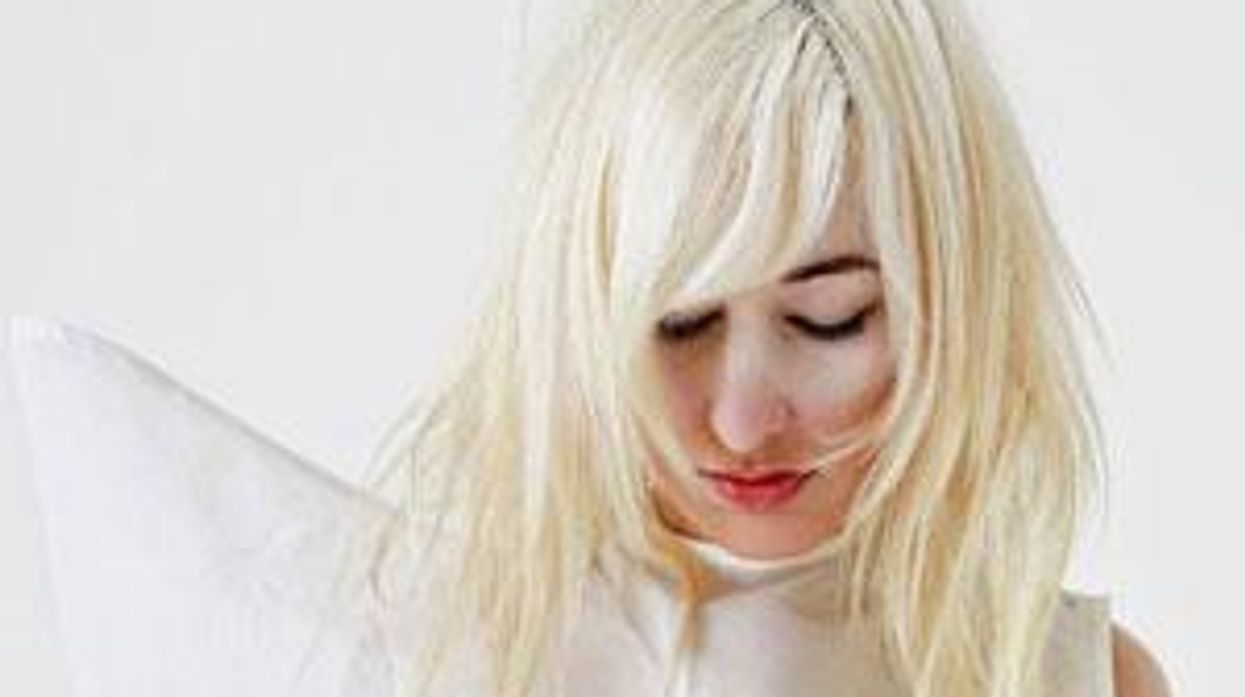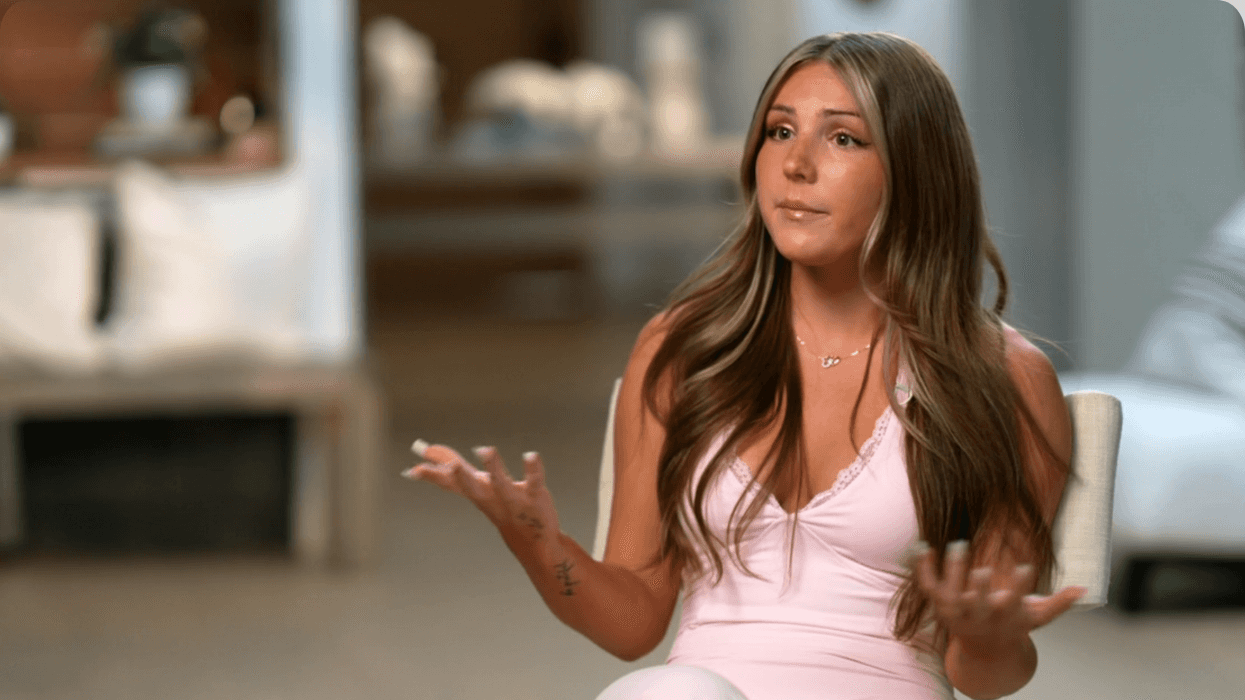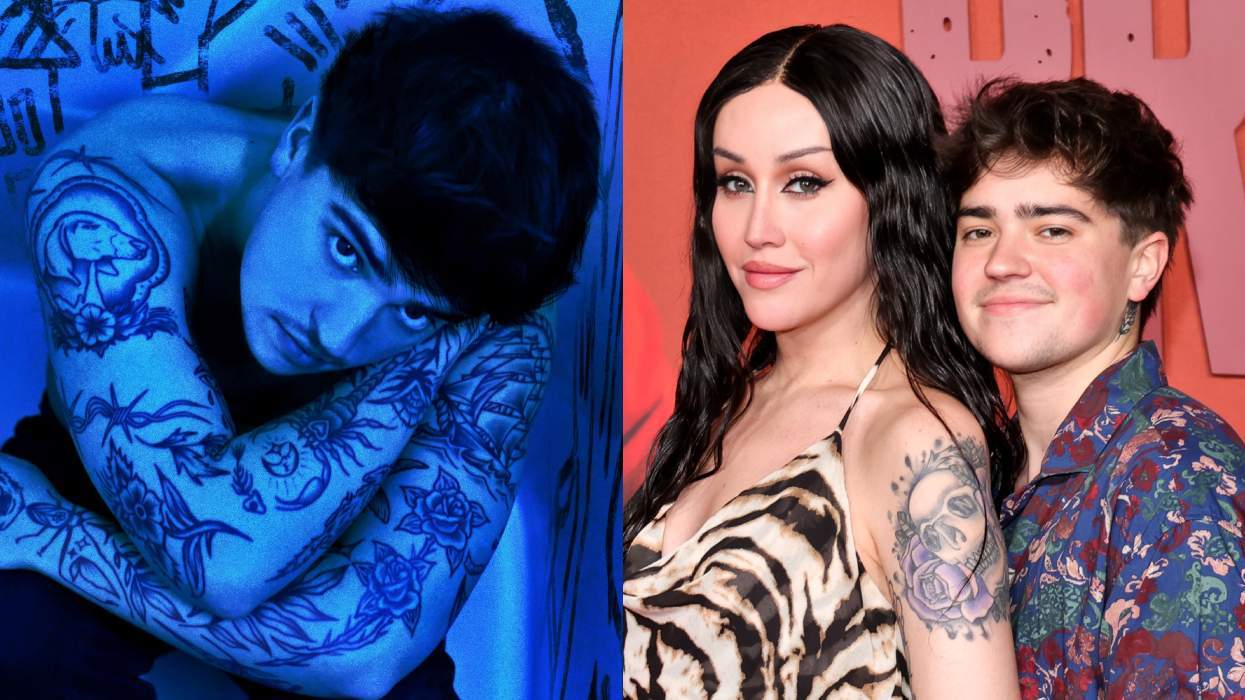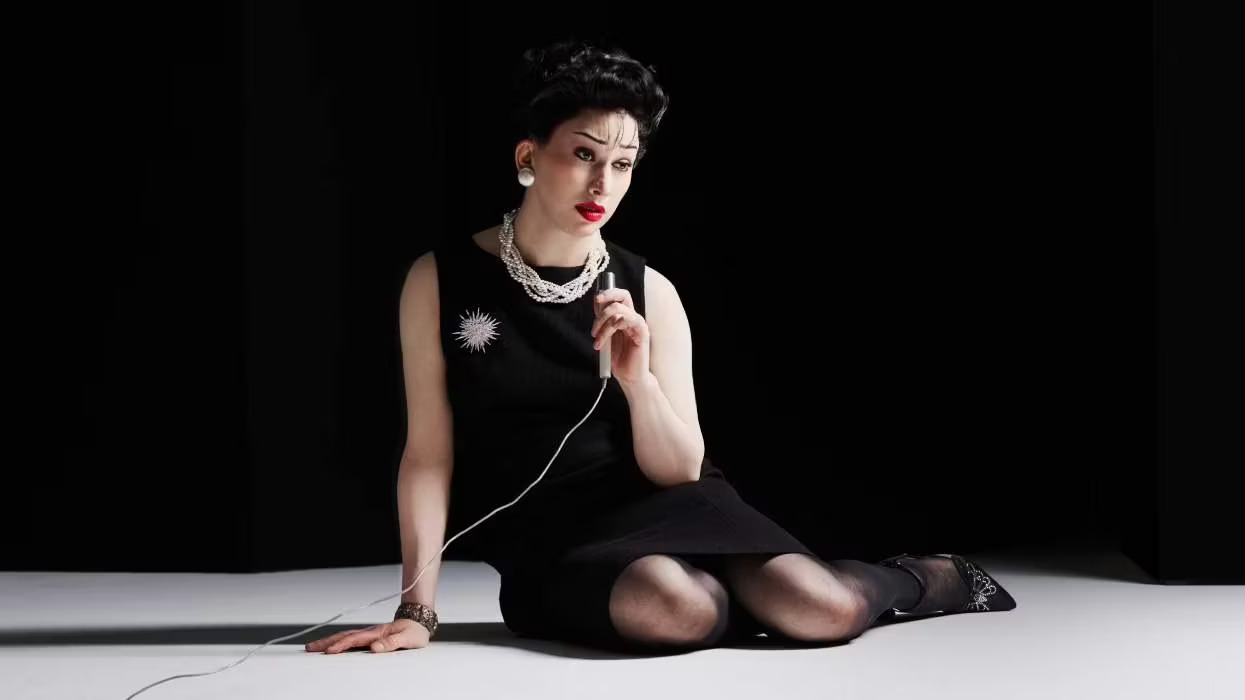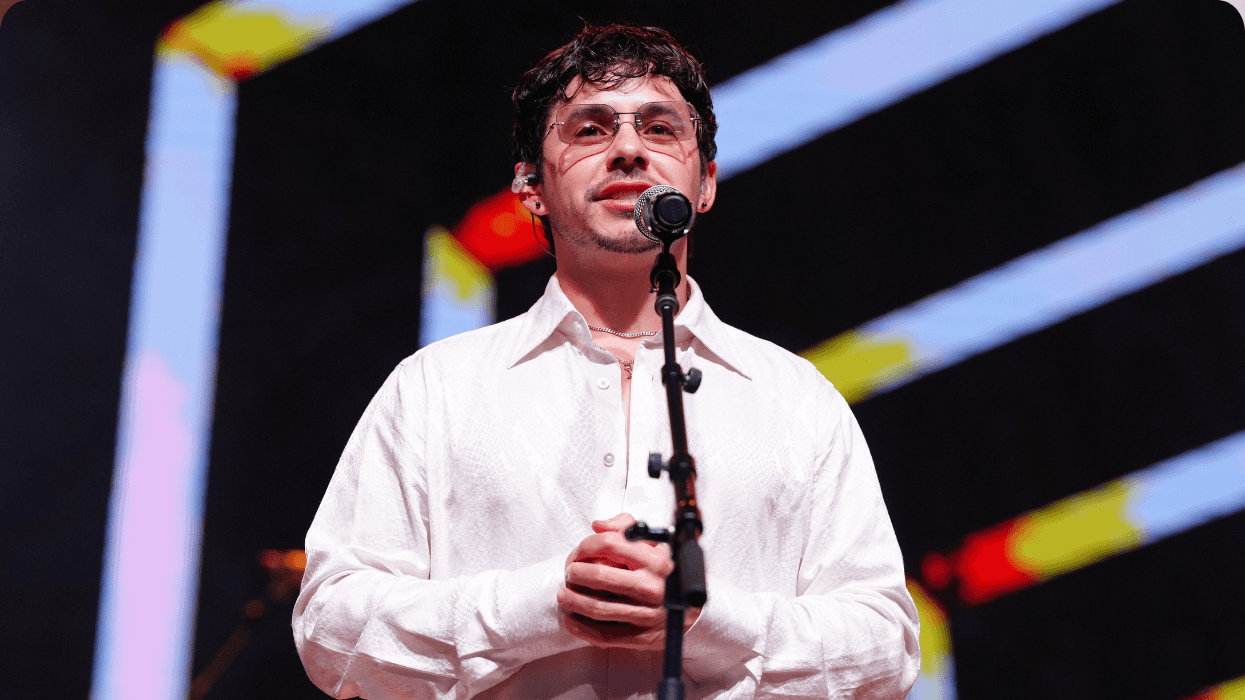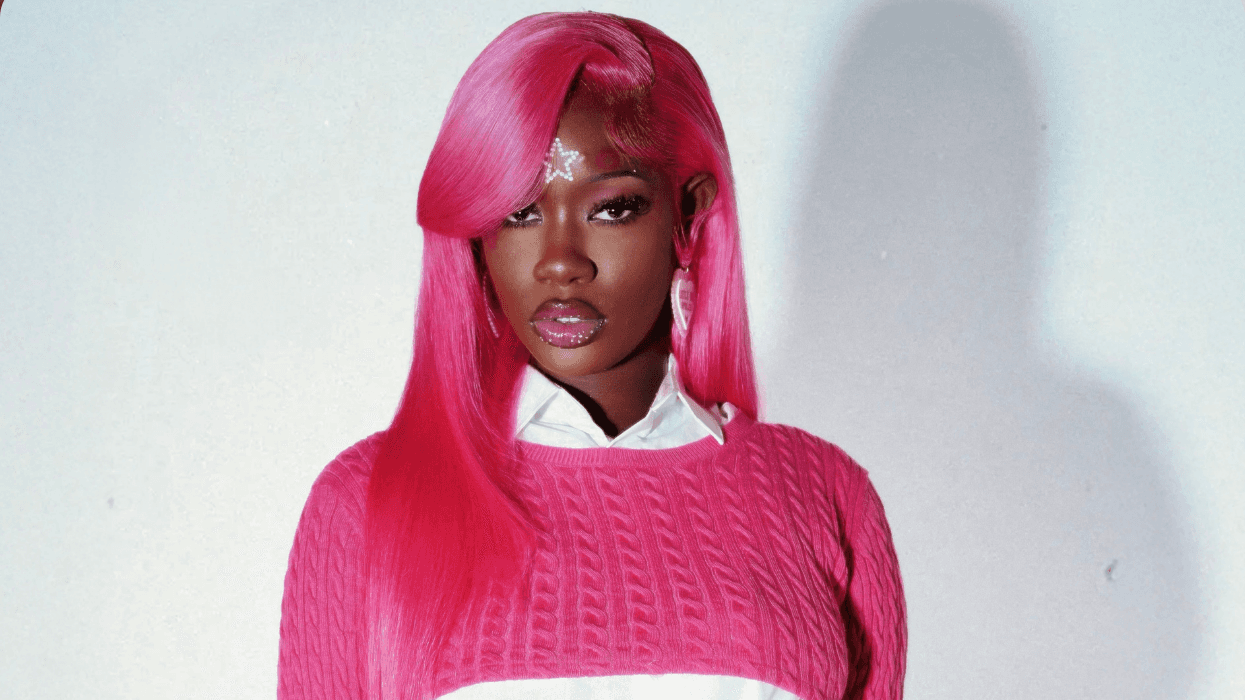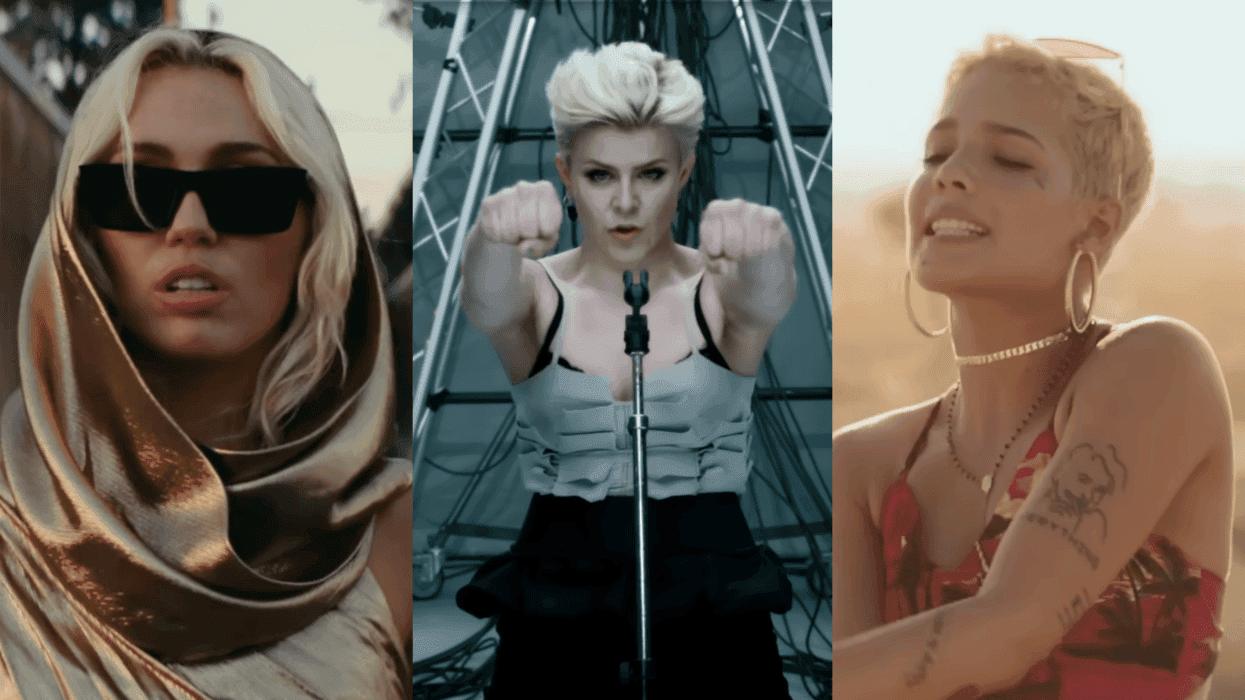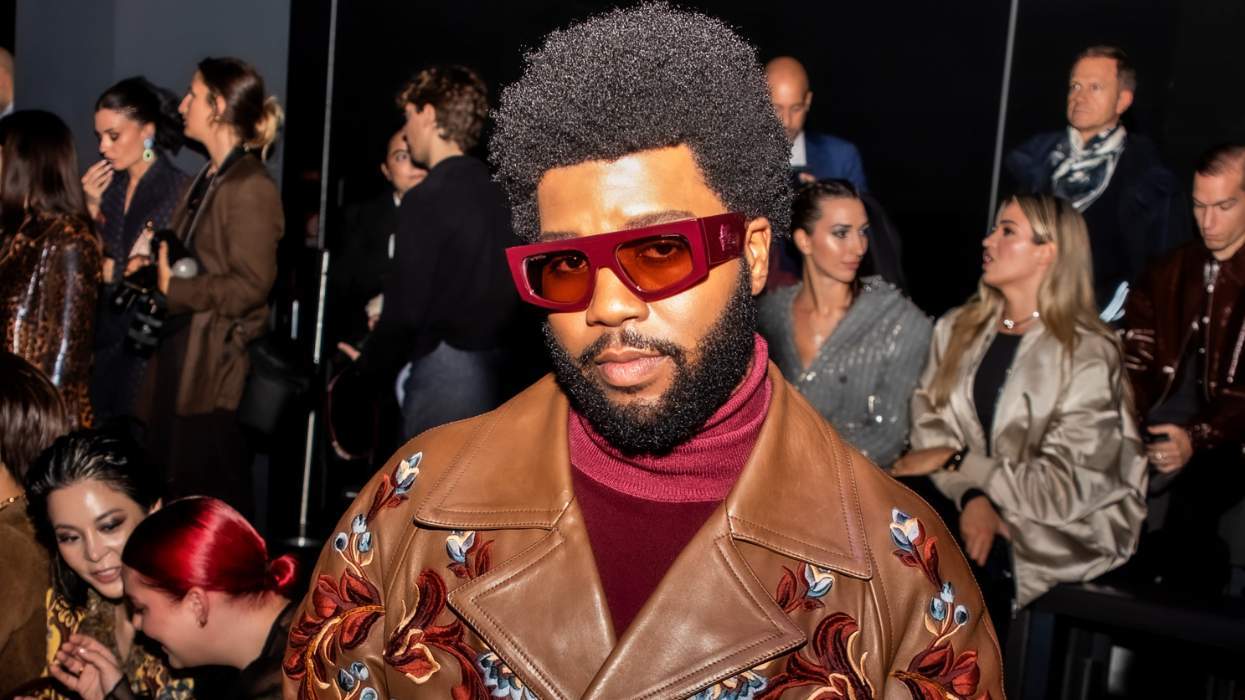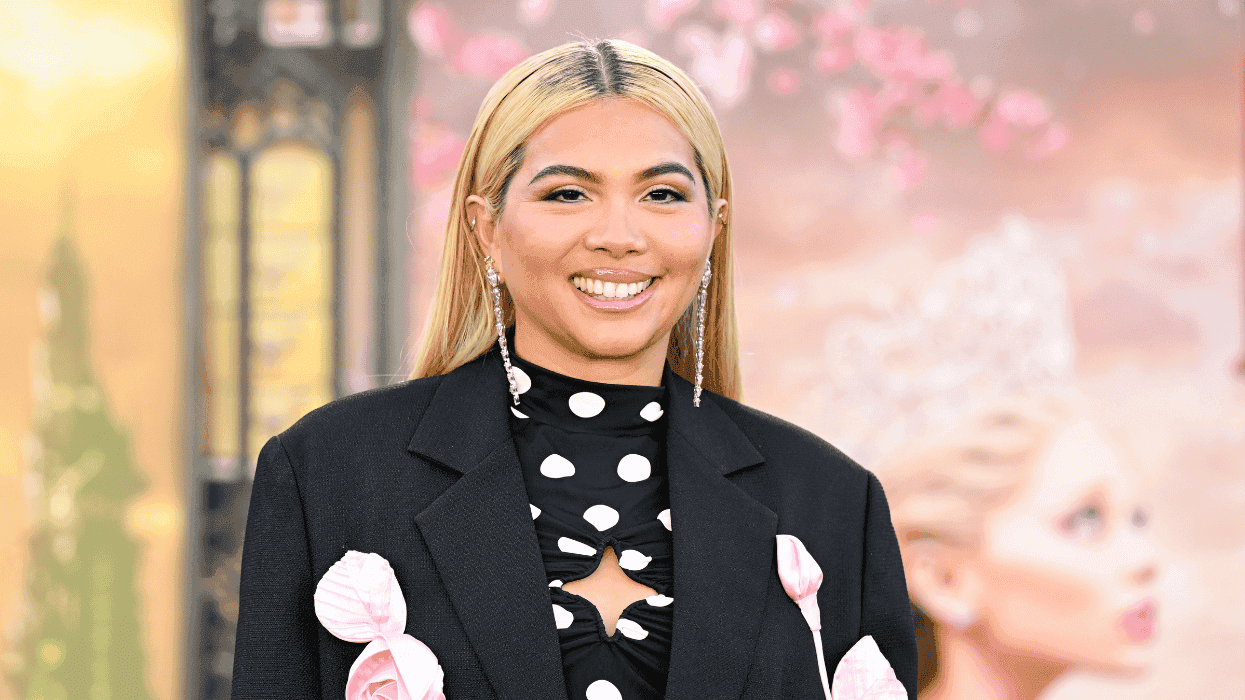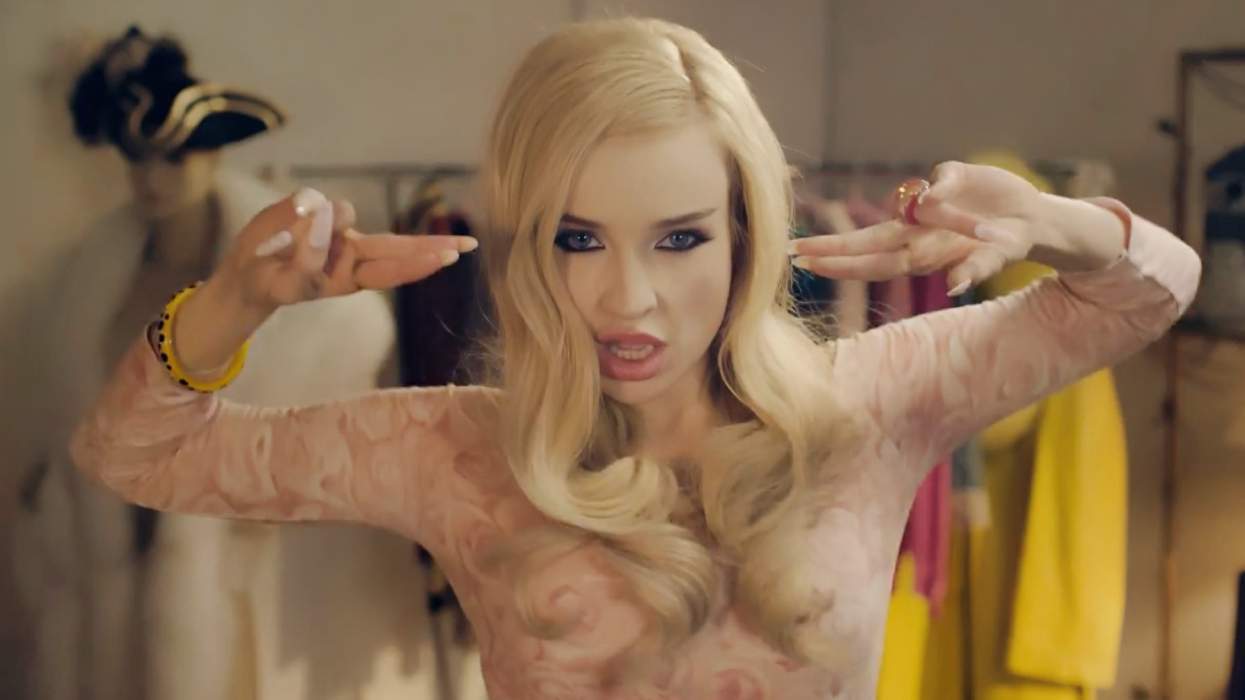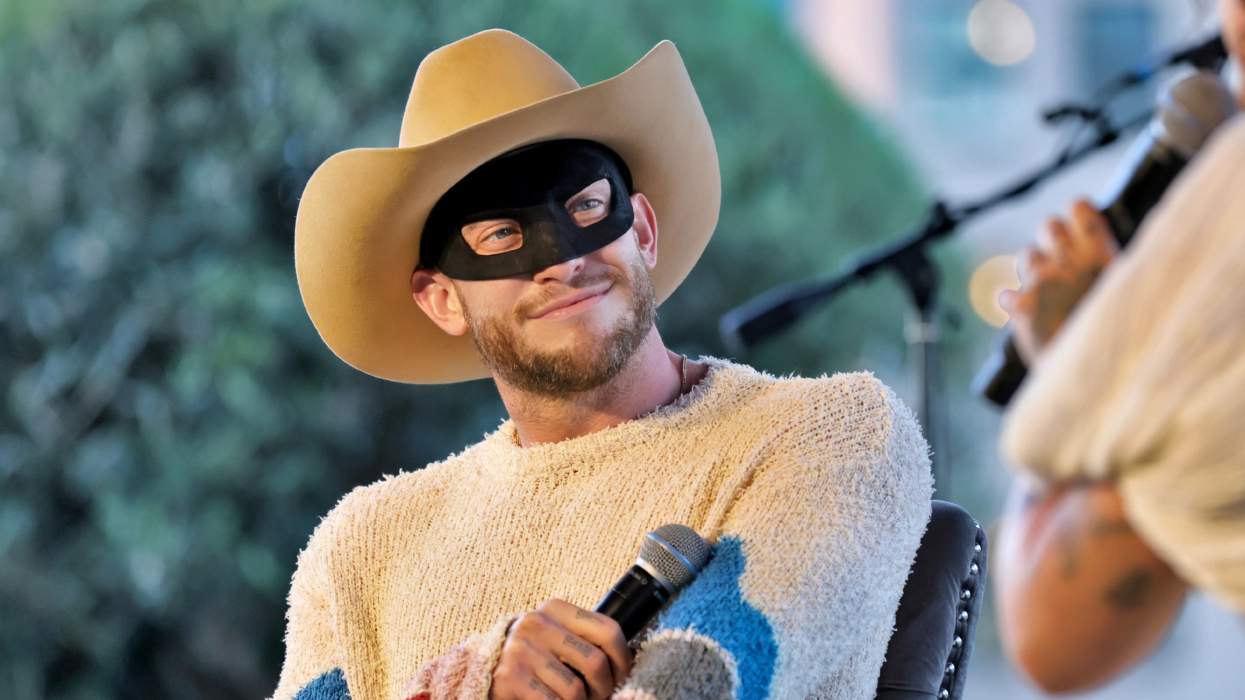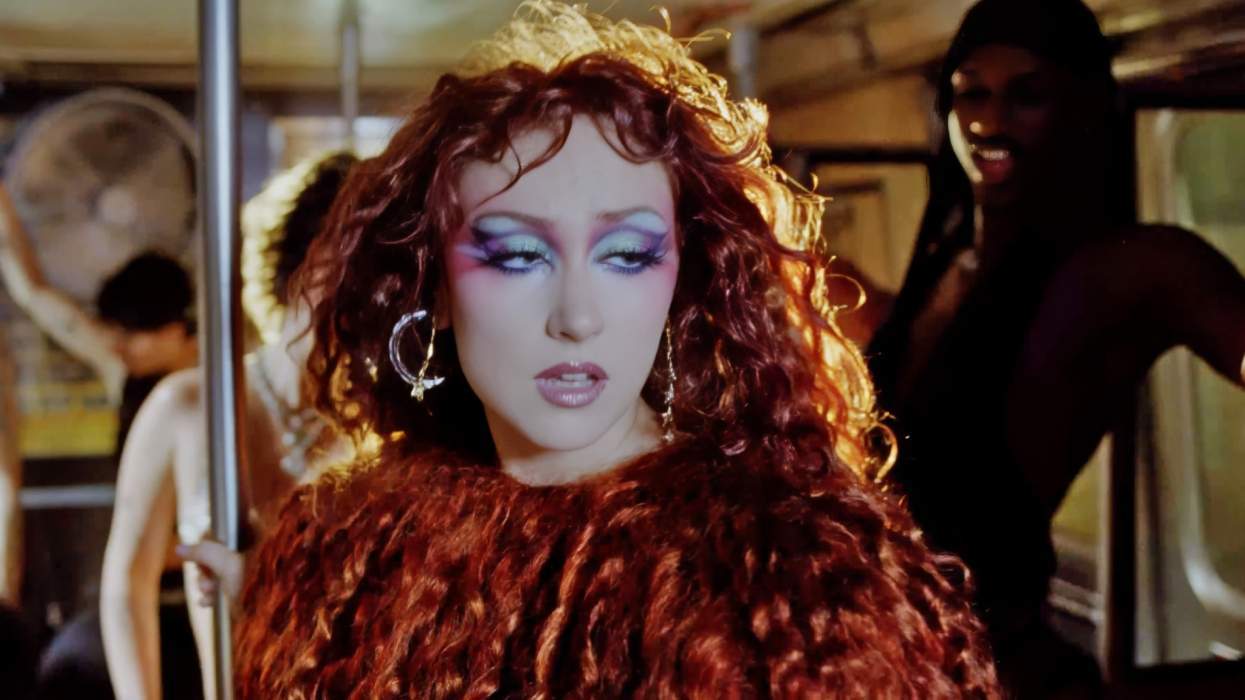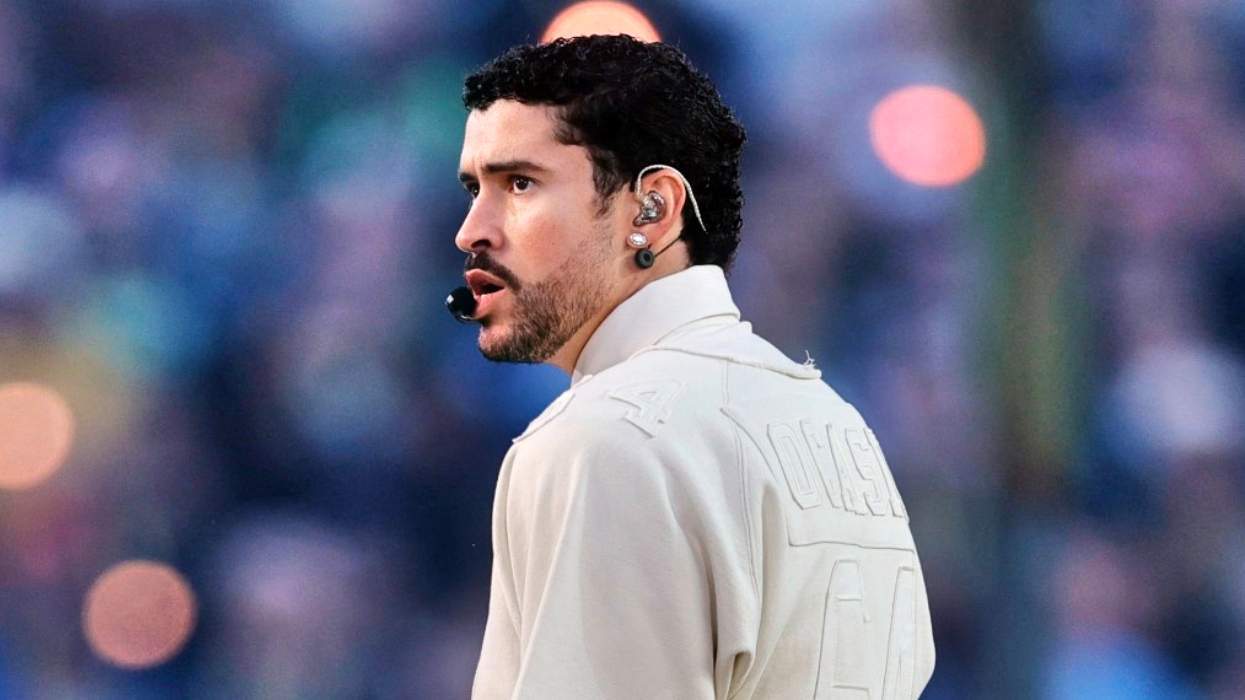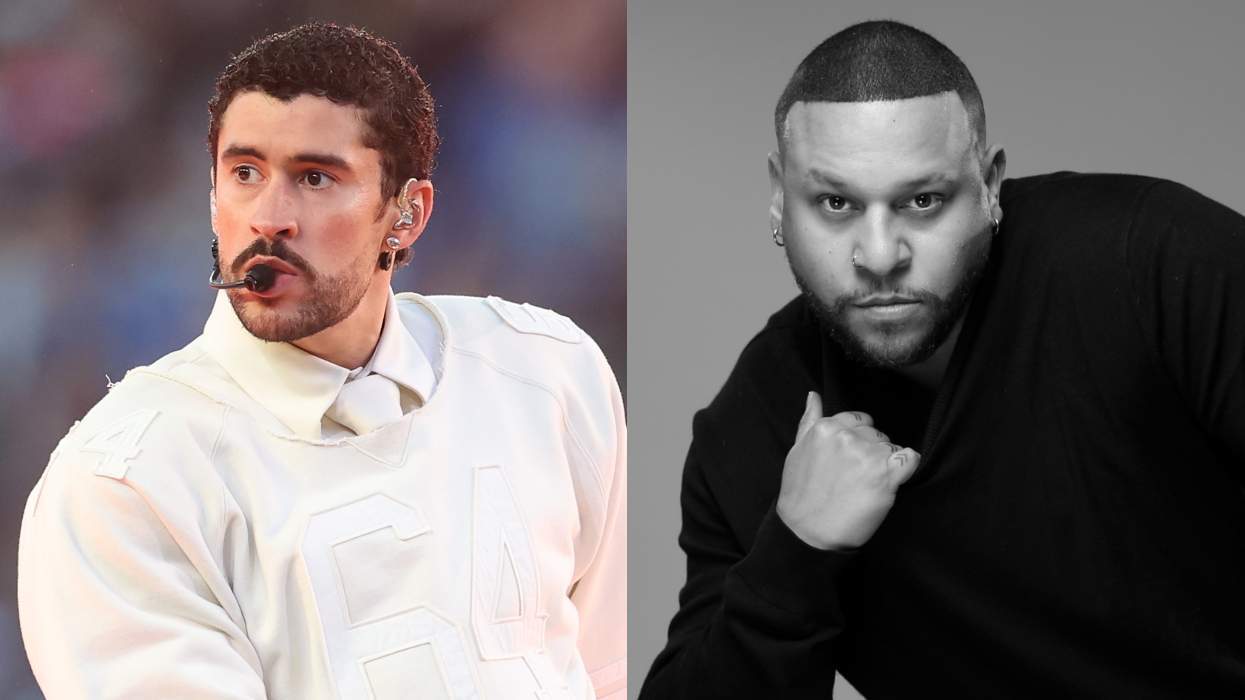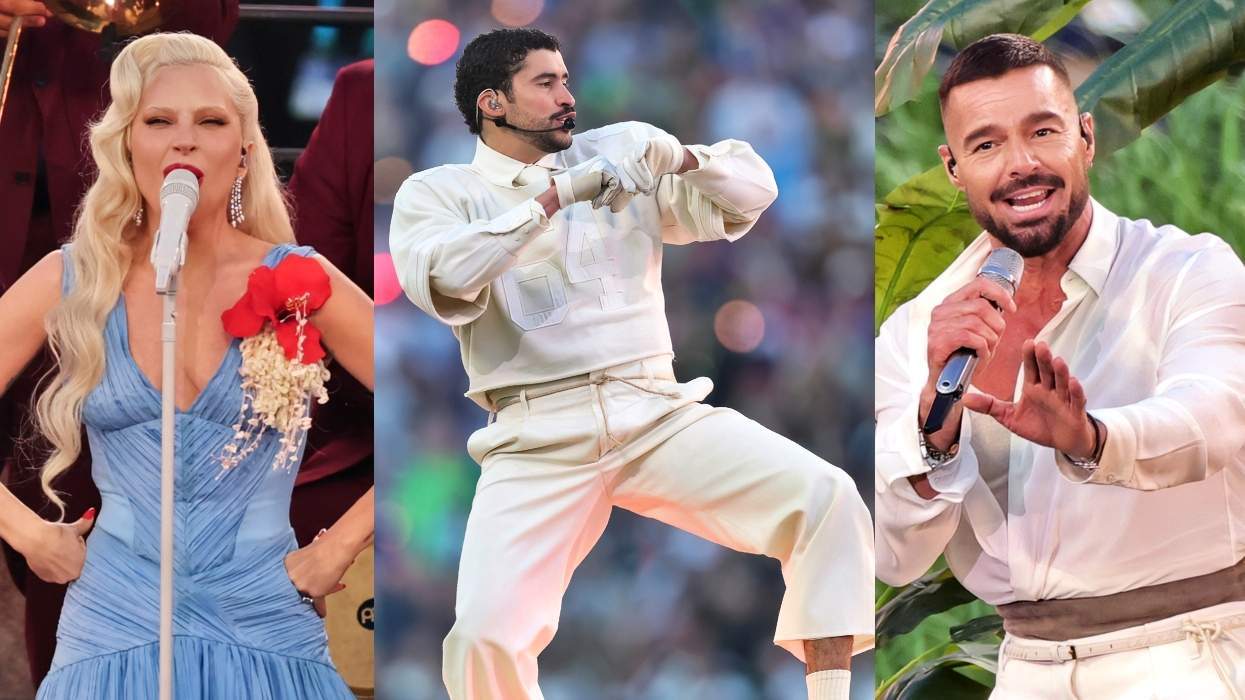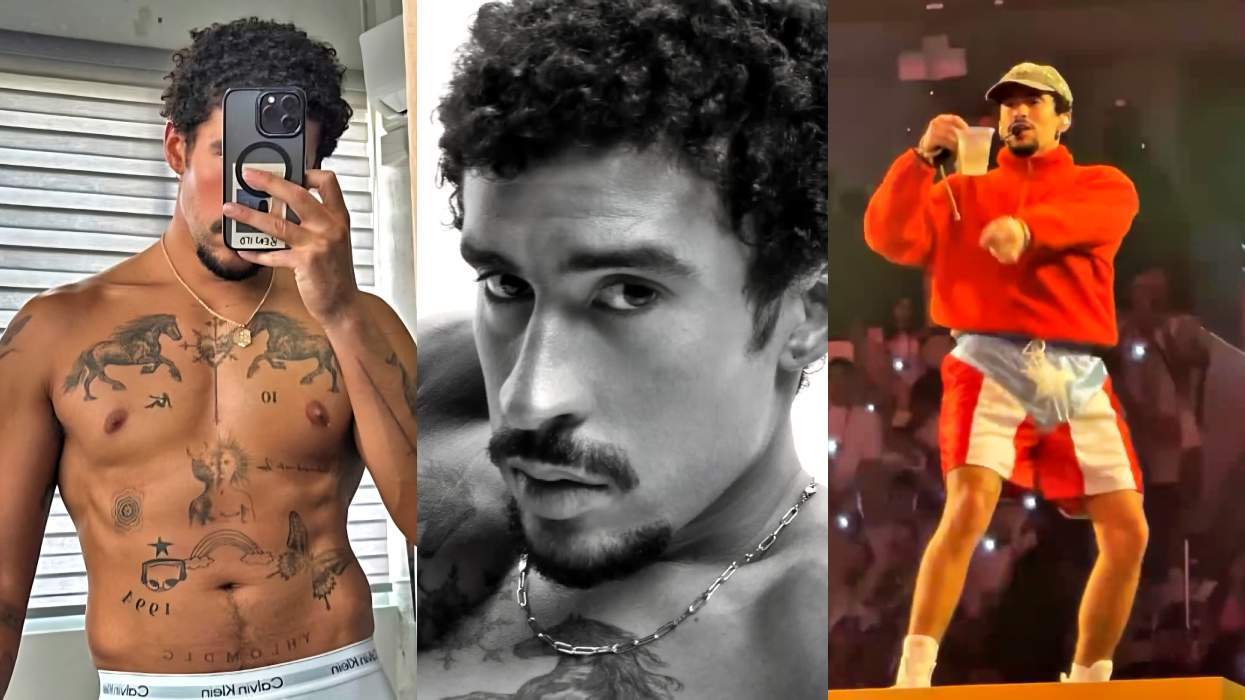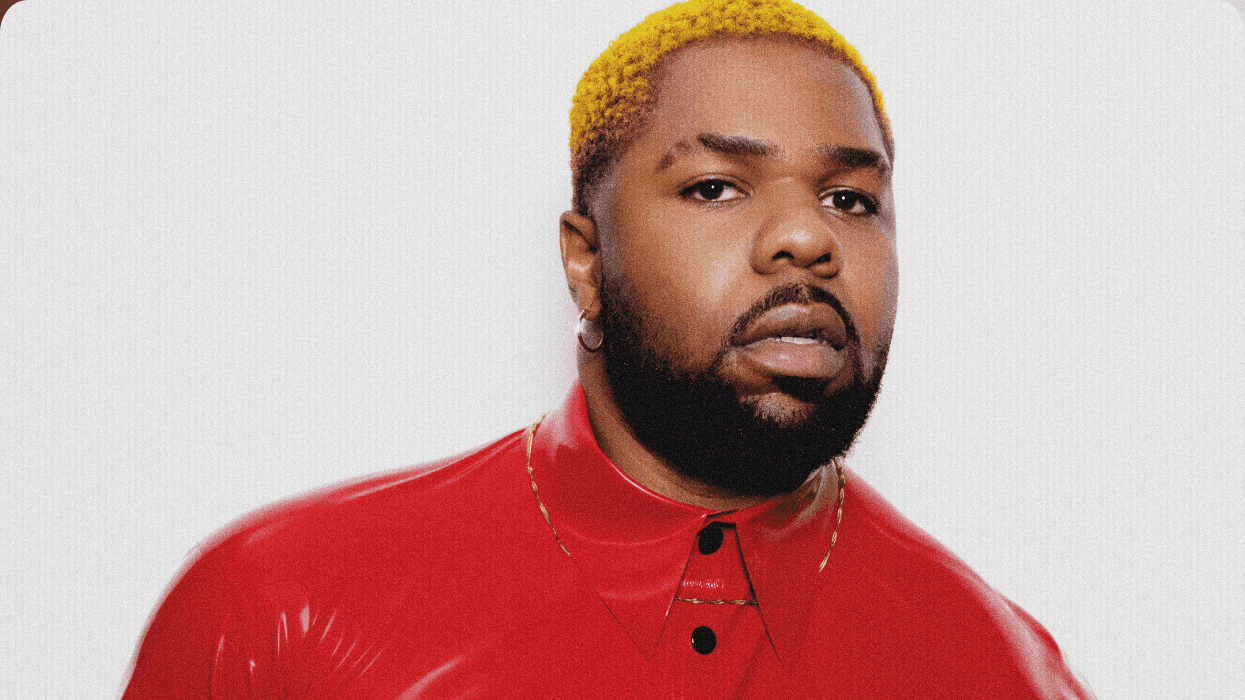Zola Jesus is a walking anomaly: Her vocal range and music videos make her appear massive, but she's only 4'11', and while her sound shifts from Goth to chill wave, she insists she's pop. Hailing from Wisconsin, Zola Jesus (birth name Nika Danilova) adapted the pseudonym to ease stage fright and has since dominated indie music blogs with a ghostlike aesthetic matched with operatic vocals reminiscent of early Kate Bush. All this and she only just graduated from college last summer.
Zola Jesus's most recent EP, Valusia, released earlier this year and she already has another slated to arrive this fall. She wants to dominate the music scene, and if all goes according to plan, she most definitely will. While headlining the Pitchfork Music Festival, Zola Jesus sat down to chat with us about her relationship to visual art, her isolated upbringing and how it affected her work, and how an artist of her age maintains longevity.
Out: How does a Russian family end up in Wisconsin?
Zola Jesus: It wasn't directly through Wisconsin. My grandparents went through there. They started in North Dakota and worked their way to Wisconsin.
Have you ever shot anything on the range? Killed any animals?
I haven't killed any animals but I have shot guns before.
Has your upbringing in a semi-isolated community influenced the way you think about social media?
I love the Internet because even at a young age I used the Internet as a way to communicate with people around the world. You can live in an isolated community and still have a connection to society. It can be abused sometimes -- because people can never be alone -- so they rely on the Internet to keep them company. Using sites such as Facebook or MySpace to connect with people makes them feel like they are never alone. This is not healthy. You need to feel okay being alone.
Do you feel alone onstage?
It's more of a terrifying solitude. I am thankful that I have my band to help me take care of playing the songs. It's better than just being up there, with so many people around you. You feel this sense of responsibility put all on you. It is a fun responsibility.
Do you write alone?
Yes, I write alone. I usually write in an empty room, or empty house, by myself. When I write around other people I get overly critical because I feel like they are judging me. I can't collaborate with people very easily when I am writing for Zola Jesus. It is introspection.
The pseudonym of Zola Jesus that you adopted -- does it take away the anxiety you feel on and off stage?
In the beginning, it gave me an ability to hide from my work. If it didn't work then I could disown it. Also, it lightens the load and it allows me to try different things under that name. It is liberating.
In a lot of interviews you draw parallels between your work and the work of visual artists. Many musicians forget that they are in fact artists. Can you talk briefly about these connections?
Music is such a powerful art form. I think people forget that because it is such a consumerist form as well. A lot of music is made to buy and sell, but it is primarily a form of expression. When you are writing, it is important to consider that more than the consumerist part because then you are making something from a place that challenges popular art. It is very important for me to connect to other artists in different forms and mediums because they can influence my own writing process. When you are informed by musicians, it becomes too much of a direct influence, but when you are influenced by writers, or visual artists, or directors, then it becomes a form of artistic translation.
Was there anyone during your childhood that directly impacted your relationship with the visual-art world? Or was it all personal research and education?
It was a culmination of all the things I found inspiring and all the fields of artistic expression. There are a whole bunch of people I am inspired by.
What is your family's reaction to your music?
They are really proud. I think in the beginning they wished the music had been cleaner when it was rougher.
A lot of people define you as Goth, which in a lot of ways I don't understand because Goth is so German and Industrial.
Totally.
Do you ever get annoyed when someone defines you in the wrong genre or is the concept of genre useless at this point?
I think any artist or musician would say that genre is conflicting against what they are trying to do and what we are trying to create. I am one of those people that think it is limiting to say I am Goth, when really I like things that are challenging and difficult. This might be considered Goth because it is easy to prescribe a cartoon idea of emotion to it. Goth has become a cartoon so they like to consider you it because it is easier for them, which is fine but lazy on their part.
Who do you think is listening to your music?
Everyone. When I see the audience, it is so exciting and thrilling. Every type of person is there, and that is what I have always wanted. I have always been the kind of person that wants to connect on a human level as to not alienate anyone.
On your website, you link to many different magazines and art collectives. Are these collectives friends or organizations you have collaborated with?
They are things I really want to support. I am so glad you noticed that because I feel like I have this voice so I want to speak about things I am really interested in or believe in'mostly artistically. Hopefully, people who read my website or read my interviews will research and grow their own taste. While growing up, I would read interviews with artists and they would talk about people they are interested in, and then I would research those people. That is another way to grow your music taste and point of references for music.
Have you found that those organizations are garnering more buzz because of your shout-outs?
I hope so! A lot of them are really great! I really love UbuWeb and the Avant Garde Project and Brainwashed, which is an amazing music website. They deserve so much more credit. They have been around forever. Organizations like that are important in keeping the culture alive of avant-garde music and alternative underground music.
So here you are headlining Pitchfork Music Festival but you are playing smaller venues including the Satellite in L.A. You are at this awkward moment in your career when your fame is exceeding venue capacity.
That happened in the last tour when the venues I was playing were being pushed to capacity, which is all you can ask for as an artist. It's interesting to see the dynamics. I need a little more time to grow in some cities because of the exposure there. It's really exciting to come back to a city and play larger venues and see my career grow very visually.
How does the audience response change when you travel oversees?
It's a little crazier, I am not sure why. Maybe that is because Europe is bigger. My music is not inaccessible by any means. It is pretty straightforward pop music, but the themes are a little weird in my music, and Europe is more open to that.
What is your definition of pop?
Anything with a good melody that catches.
In the writing process, how do you know that a song has failed?
When I don't want to listen to it. If it is something you can't respect yourself for making, then no one is going to respect you for making it.
Then you write for you?
I write for me, but since I know that a record is going to come out to the public, I write lyrics that I know can connect with other people. These are my own experiences and ideas, and I will write those songs regardless, but I am more conscious that the public is going to be listening to it, so I want to speak to them and reach out to them.
As a younger artist, do you ever have concerns about longevity?
Oh yeah. The only thing I want is to do this forever. My mission as an artist is to go to the top, and to do this, you have to hope that people will continue to support you and watch you grow. That is something I worry about everyday because this is the only thing I want to be doing, or have ever done.
A lot of young artists disregard this notion of longevity. To maintain fervor, do you think that you have to transform with each album or remain consistent?
For my own piece of mind I have to transform with every album. If I put out two albums that sound the same, then I am doing a disservice to the art or the music. The whole point of being an artist is to create something new and give something new to the community, and if you don't do this, then there is no point. You might as well put out one record and then quit music.
Is this both in terms of sound and visual aesthetic?
Artists should try everything. It is a challenge for yourself to expand your scale and your depth and your talent and what you can create. It is just so important to continue to change.
Zola Jesus's album, Conatus is due out on October 4. For more info on the singer-songwriter, including upcoming tour dates, visit her official website.


